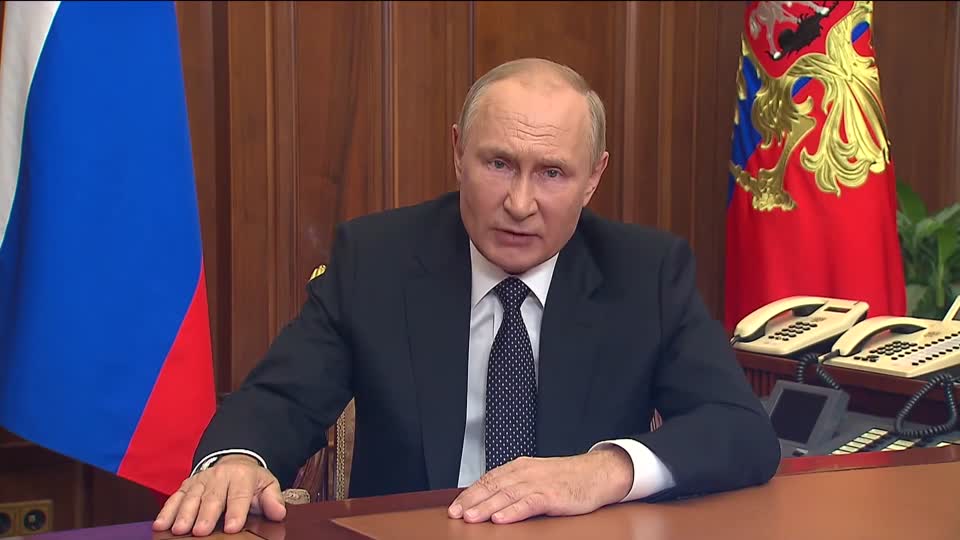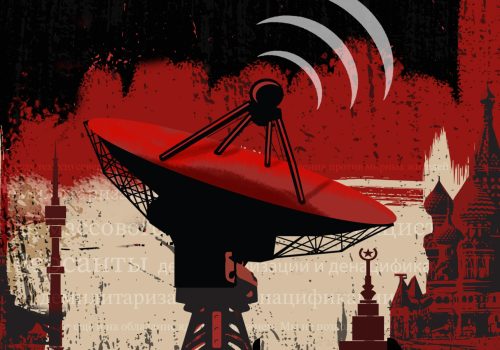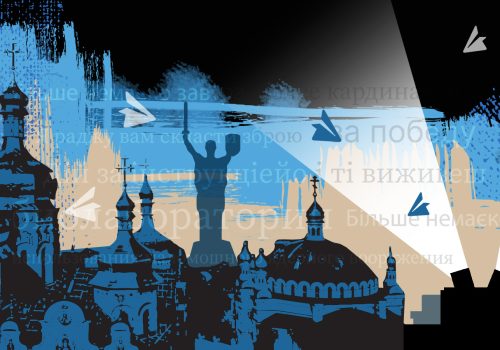When Vladimir Putin looked directly into the camera at 5:30 AM Moscow time one year ago and announced a “special military operation” in Ukraine, it shocked the world, though the Russian military buildup had been evident for months.
Another buildup had happened in parallel, and to those monitoring it Putin’s predawn speech was somewhat less surprising. A flood of propaganda had cleared the way for the Russian onslaught that turned the Donbas conflict into an all-out war of aggression: false, misleading narratives coming from Putin, official Kremlin channels, and pro-Kremlin Russian media outlets. In his speech, Putin hammered home five main themes, variations of which had echoed throughout the Russian media ecosystem since the 2014 Donbas incursion:
- “Russia is seeking peace”
- “Russia has a moral obligation to do something about security in the region”
- “Ukraine is aggressive” (including attempts to associate Ukraine with terrorism, Nazis, and weapons of mass destruction)
- “The West is creating tensions in the region”
- “Ukraine is a puppet of the West”
The Atlantic Council’s Digital Forensic Research Lab has tracked Russian activity in Ukraine and Russian propaganda online since 2014. After Putin’s twenty-eight-minute litany of falsehoods, distortions, and excuses, and the full-scale war of aggression it launched, the DFRLab’s experts and researchers began a landmark study of the narrative warfare Putin has waged against Ukraine, cataloguing and analyzing the misinformation Russia weaponized. In an analysis of the February 24 speech transcript, the team found that Putin referred more than two hundred times to the pro-Kremlin narratives, escalatory events, and emotional themes that played a key role in the run-up to the war. The speech was carefully crafted to place the blame on Ukraine, the United States, and NATO, while framing Russia as desiring peace but now taking military action as a moral responsibility.
Don’t miss the full studies, Narrative Warfare and Undermining Ukraine, which delve deeper into Putin’s propaganda strategy, and consider what the future holds in terms of holding Russia accountable for its weaponization of information to engage in a war of aggression against Ukraine.
Below, revisit the speech that launched Putin’s war against Ukraine by clicking on a highlighted passage to see the related narratives tracked by the DFRLab:
Related content
Image: EYEPRESS via Reuters


